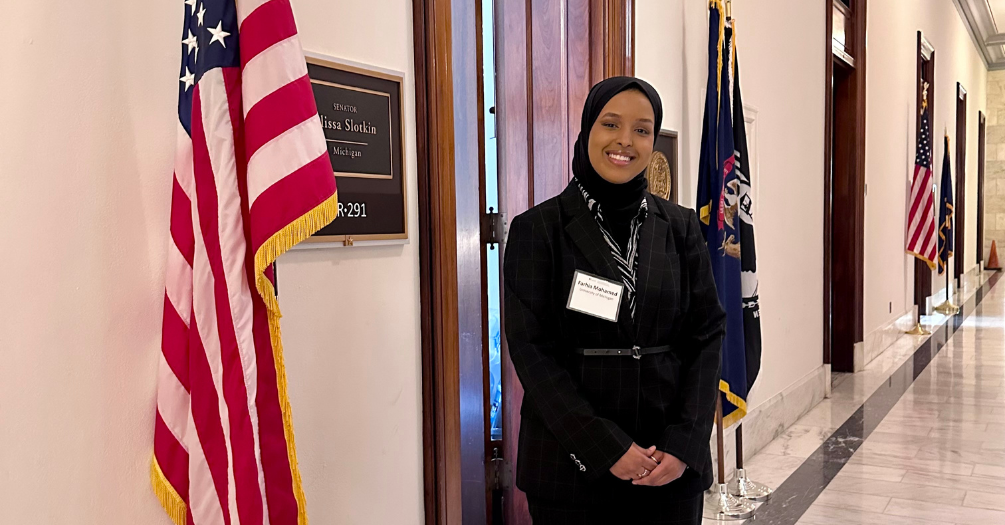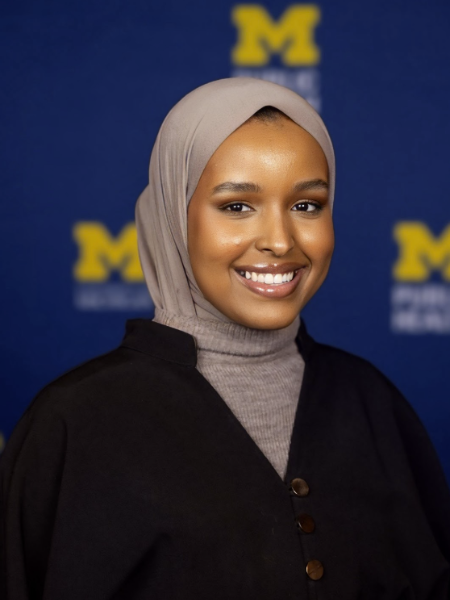Bridging science and policy: My journey to Capitol Hill

By Farhia Ahmed Mohamed
Master of Public Health student, Nutritional Sciences
I’ve always believed in the power of public health to make real, tangible change. But I hadn’t fully understood how crucial policy is in turning science into action. That changed when I attended the 2025 Catalyzing Advocacy in Science and Engineering (CASE) Workshop, hosted by the American Association for the Advancement of Science (AAAS) in Washington, DC.
Selected and sponsored by the University of Michigan Rackham Graduate School as one of four graduate students from a competitive pool of applicants, I joined over 170 students from across the country—all from different disciplines but united by one goal: to learn how science shapes policy and how we, as emerging professionals, can help bridge that gap.
Over the course of four action-packed days, we heard from science policy experts, congressional staffers, and advocacy leaders. We explored how the federal budget affects research funding, how to communicate science effectively, and how to navigate the world of policymaking.
One of the most important lessons I took away is that science informs policy, but it does not prescribe it. Facts alone aren't enough—stories, relationships, and understanding the political context are what drive change.
The workshop culminated in Capitol Hill visits to Senate and Congressional offices representing Michigan. Standing in those rooms, advocating for science and public health, was empowering—especially as a Muslim African woman in spaces where people like me are still underrepresented. It made me realize how important it is not just to do the work, but to speak up. This experience opened my eyes to new possibilities.
I’ve always cared about making my research meaningful, and now I understand that policy is a powerful way to achieve that impact. I'm committed to staying involved in science advocacy because real change happens when research informs decisions and voices from all backgrounds are heard.
This experience didn’t just inform me—it energized me. It reminded me why I chose public health and why making my research matter outside the classroom is so important. I’m walking away from this experience with a new sense of purpose and a stronger commitment to staying engaged in advocacy moving forward.
About the Author

Farhia Ahmed Mohamed is a Master of Public Health student in Nutritional Sciences at the University of Michigan School of Public Health, also pursuing a certificate in Social Epidemiology. She is passionate about disease prevention, health promotion, and using science to inform policy. Farhia is especially committed to advocating for underrepresented communities in public health and exploring the intersection of research, equity, and policy to drive meaningful change.
- Learn more about Nutritional Sciences at Michigan Public Health.
- For a healthier future in a changing world, look to Michigan Public Health
